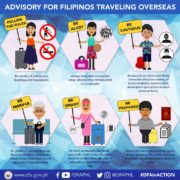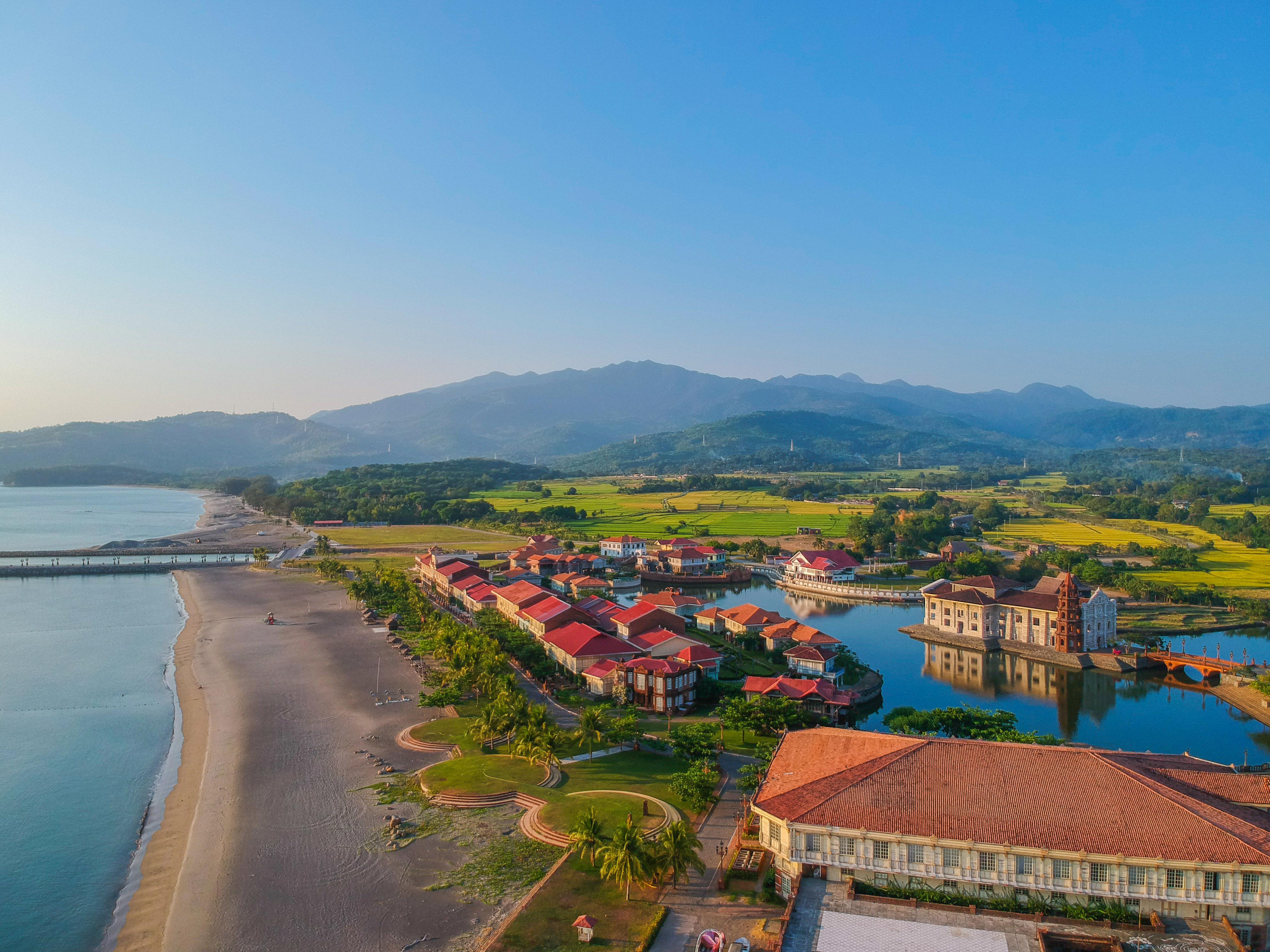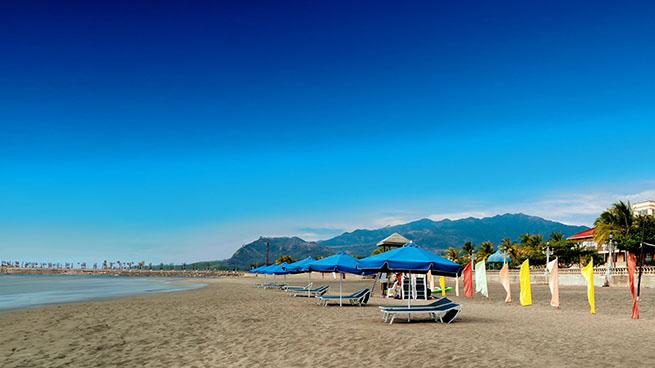
MANILA, Dec. 22 — The Department of Foreign Affairs (DFA) advises all Filipinos traveling overseas to exercise caution and vigilance when visiting key tourist destinations. No place is completely safe from people who try to take advantage of others, and tourists have a tendency to lower their guard while sightseeing. Filipino travelers should therefore be aware of petty crime incidents that normally spike during peak tourist seasons.
To avoid falling victim to thieves, pickpockets, snatchers, scammers, and other petty criminals, as well as being inconvenienced during their travels, Filipinos are reminded of the following:
Be mindful of and respect local laws and regulations;
Always keep alert in crowded areas such as popular tourist spots, airports, bus, train and metro stations, markets and shopping areas, large sports and concert venues, and onboard public transportation, among others, where petty criminals tend to congregate;
Be wary of con artists who use a variety of tactics to distract tourists while accomplices gain access to one’s personal items;
Be careful of one’s belongings. Never leave items that may easily be picked up, such as wallets, mobile phones and cameras, unattended. Always keep these close to you, especially in crowded areas;
As much as possible, distribute your cash, credit cards, important documents and other valuables in separate compartments in your bag;
and
Keep both hard and electronic copies of your passport, IDs, credit cards and important documents handy while on travel.
Filipinos whose passports get lost or stolen should immediately secure a Police Report and contact the nearest Philippine Embassy or Consulate for assistance. The Embassy or Consulate can help Filipinos who lose their passports by issuing a travel document that will allow travel back to the Philippines.
Our kababayan should keep in mind that there are more stringent requirements for the replacement of a lost or stolen passport as compared to securing a regular passport, especially while abroad. It therefore pays to take extra precautions while on travel to avoid this inconvenience.
–
For more information, visit the Department of Foreign Affairs website at
https://dfa.gov.ph.






